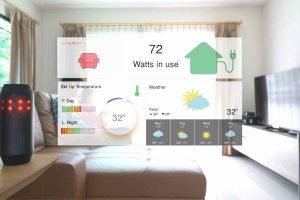The evolution of the modern home has taken a revolutionary turn with the advent of smart home technologies. What was once a conventional living space has now transformed into an interconnected ecosystem of intelligent devices and solutions aimed at enhancing convenience, efficiency, and security. Navigating this world of innovation involves understanding the diverse range of products, technologies, and solutions that collectively define the smart home experience.
Understanding Smart Home Products
Smart home products encompass a wide array of devices designed to bring automation, connectivity, and control to various aspects of domestic life. These products range from smart speakers and thermostats to connected appliances, lighting systems, security cameras, and more. Each device serves a unique purpose, contributing to a more integrated and efficient home environment.
Key Technologies Powering Smart Homes
1. Internet of Things (IoT): At the heart of smart homes lies the IoT, enabling devices to connect and communicate with each other over the internet. This interconnectedness allows for seamless interaction and data exchange between various smart devices.
2. Artificial Intelligence (AI): AI-driven systems and algorithms facilitate intelligent decision-making within smart homes. Machine learning enables devices to learn from user behavior, adapting and optimizing their functions to better suit individual preferences.
3. Voice Recognition and Control: Voice assistants have revolutionized home interaction. With the ability to understand and respond to voice commands, they serve as central control hubs, enabling users to manage multiple devices effortlessly.
Comprehensive Solutions for Smart Homes
The integration of these technologies results in comprehensive solutions that cater to various aspects of modern living:
- Home Automation: Automated systems that control lighting, temperature, entertainment, and more, enhancing convenience and energy efficiency.
- Security and Surveillance: Smart security systems equipped with cameras, sensors, and alarms provide real-time monitoring and alerts, fortifying home security.
- Energy Management: Energy-monitoring devices and smart appliances optimize energy consumption, contributing to sustainability efforts and cost savings.
- Health and Well-being: Innovative devices monitor health metrics, create optimal living conditions, and assist in health management within the home.
Challenges and Considerations
As with any technological advancement, smart homes come with their share of challenges. Interoperability issues between devices from different manufacturers can hinder seamless integration. Moreover, concerns surrounding data privacy and cybersecurity call for robust measures to protect user information in a connected environment.
Future Prospects
The future of smart homes is brimming with possibilities. Advancements in technology will lead to more sophisticated, intuitive, and interconnected systems. Greater standardization and improved interoperability will simplify integration, making smart home solutions more accessible and user-friendly.
Conclusion
Navigating the world of smart homes involves understanding the breadth of products, the depth of technologies, and the practicality of solutions available. As these technologies continue to evolve, smart homes promise a future where living spaces are not just connected but responsive, personalized, and tailored to individual needs.














Add Comment